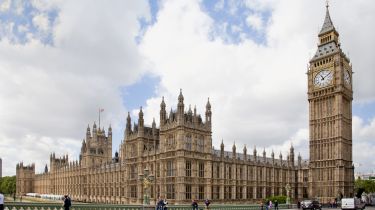What’s in the 2023 Autumn Statement for drivers? EV incentives, fuel duty or VAT on charging?
We look at some of the options for chancellor Jeremy Hunt when he announces his plans on 22 November

Will a new package of purchase incentives stimulate more electric car sales to private buyers? The car industry hopes so, and is waiting with bated breath to hear whether the Chancellor intends to heed calls for tax-payer funded support for EV buyers in the Autumn statement tomorrow. Meanwhile, new data analysis has emerged that attempts to tie the end of the previous package of purchase incentives to falling demand for electric cars in the private/non-fleet market.
The study has been carried out on behalf of online lease specialist Leasing Options, and reveals the countries in Europe that have offered the biggest financial incentives to tempt buyers into EVs.
Top of the leaderboard was Romania with a whopping £9,896 average incentive per year between 2020 and 2023, but it covers both buying a new EV and scrapping an old car. The same policy in Cyprus is accompanied by an £8,700 grant, while grants in France, Germany and Italy range from £8,482 to £6,525.
The UK ranked 23rd out of 30 countries across Europe for incentives, according to Leasing Options. It says when the UK government implemented its EV purchase scheme offering £3,000 off the list price in 2020 and 2021, there was an increase in the rate of EV adoption of 185.9 per cent and 76.3 per cent respectively. In 2022 when the grant was reduced to £1,500 EV sales increased by only 40.1 per cent, while in 2023 with no grant available, growth in EV sales is predicted to be less than 15 per cent - the lowest in four years.
When looking at all the incentives in place since 2020, increases in purchase incentives correlate to an average 117 per cent increase in EV sales, while decreasing incentives cause an average 83.9 per cent drop-off in the rate of growth.
Aside from purchase incentives potentially rewarding EV buyers, there’s also pressure on the Chancellor to implement a cut in VAT on the cost of public charging.
"A potential VAT reduction on public charging from 20 per cent to a rumoured 5 per cent is not just a win for the industry but a huge budget booster for drivers of electric vehicles, says Abhishek Sampat of cinchCharge. “Currently burdened with a 20 per cent VAT, those unable to charge at home, which is estimated to be 60 per cent of the population, face a financial hurdle that could be too big to overcome if they wanted to switch away from petrol-fuelled cars.
"The VAT reduction could lead to an estimated drop from a UK public charging average of £0.68 to £0.60 per kWh. That equates to an EV driver being £250 better off if they were covering 10,000 miles annually. That’s a big impact and something we eagerly support.”
For those drivers not contemplating a switch to electric vehicles, the Autumn statement is also a potential opportunity for the Chancellor to fiddle with fuel duty rates.
Gerry Myton, head of Indirect Tax at accountancy firm HW Fisher says the government must stick with the freeze on fuel duty, or risk fuelling inflation.
“Let’s hope that the thirteenth year of fuel duty freezes isn’t an unlucky one. Many forget that VAT is added on at the pump, so if the Chancellor decides to reverse the 5p fuel duty cut this week, customers will see a 4% increase - around 6p per litre - to the price of fuel, he says. “Not only would this alienate motorists up and down the UK, it would be at complete odds with the government’s mission to keep inflation under control.”
Taking a more bullish view is campaign group FairFuelUK, with spokesman Howard Cox saying it’s “time to finally recognise that by lowering Fuel Duty and preventing opportunistic profiteering at the pumps will positively drive the economy, attract back disgruntled voters, with the positive fiscal benefit of generating even more tax income to the Treasury. It's a no brainer!"
What would you like to see announced in the Autumn statement? Tell us in the comments section below...
Find a car with the experts





